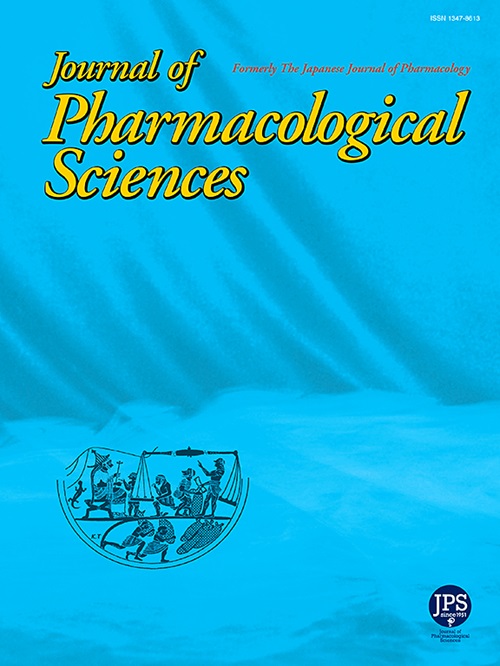Asperuloside suppresses the progression of depression through O-GlcNAcylation of IκBα and regulating NFκB signaling
IF 2.9
3区 医学
Q2 PHARMACOLOGY & PHARMACY
引用次数: 0
Abstract
Depression is a pervasive mental disorder that poses a significant threat to human health globally. Asperuloside (ASP), an iridoid glycoside extracted from Herba Paederiae, exhibits a range of pharmacological activities, including anti-tumor and anti-inflammatory effects. This study aims to explore the function and molecular mechanisms of ASP in alleviating depression. Chronic unpredictable mild stress (CUMS) was employed to establish a rat model of depression. Behavioral tests were conducted to evaluate the antidepressant effects of ASP. Apoptosis in hippocampal tissues was assessed using TUNEL assay. Primary hippocampal neuron apoptosis was assessed using Annexin V/PI staining and flow cytometry, while cell death was detected via PI staining. The expression levels of target mRNAs and proteins were analyzed by quantitative PCR (qPCR) and western blotting, respectively. Additionally, the levels of O-GlcNAcylation and ubiquitination were determined by western blot analysis following immunoprecipitation. Molecular docking was performed to elucidate the interaction mode between ASP and its target protein, O-linked β-N-acetylglucosamine transferase (OGT). Our findings revealed that ASP treatment significantly ameliorated depression-like behaviors and cognitive dysfunction, as well as inhibited hippocampus apoptosis in CUMS-induced rats, Moreover, ASP inhibited LPS-induced neuronal cell apoptosis and suppressed the activation of the NF-κB signaling pathway. Mechanistically, we demonstrated that ASP promoted O-GlcNAcylation of IκBα, and suppressed its ubiquitination and phosphorylation, thereby stabilizing IκBα protein. In conclusion, ASP exerts antidepressant effects by enhancing IκBα O-GlcNAcylation, thus inhibiting its ubiquitination and phosphorylation. These findings provide a novel therapeutic target for the treatment of depression.
Asperuloside通过i - κ b α的o - glcn酰化和调节NFκB信号传导抑制抑郁症的进展
抑郁症是一种普遍存在的精神障碍,对全球人类健康构成重大威胁。Asperuloside (ASP)是一种从芍药中提取的环烯醚萜苷类化合物,具有抗肿瘤、抗炎等药理作用。本研究旨在探讨ASP在缓解抑郁症中的作用及其分子机制。采用慢性不可预测轻度应激(CUMS)建立抑郁大鼠模型。通过行为测试来评价ASP的抗抑郁作用。TUNEL法检测海马组织凋亡。采用Annexin V/PI染色和流式细胞术检测海马原代神经元凋亡情况,采用PI染色检测细胞死亡情况。分别采用定量PCR (qPCR)和western blotting分析靶mrna和靶蛋白的表达水平。此外,免疫沉淀后用western blot分析测定o - glcnac酰化和泛素化水平。通过分子对接研究ASP与其靶蛋白O-linked β- n -乙酰氨基葡萄糖转移酶(OGT)的相互作用模式。结果表明,ASP可显著改善cms诱导大鼠抑郁样行为和认知功能障碍,抑制cms诱导的海马细胞凋亡,抑制lps诱导的神经元细胞凋亡,抑制NF-κB信号通路的激活。在机制上,我们发现ASP促进了i - κ b α的o - glcn酰化,抑制了其泛素化和磷酸化,从而稳定了i - κ b α蛋白。综上所述,ASP通过增强i - b α o - glcn酰化,从而抑制其泛素化和磷酸化,从而发挥抗抑郁作用。这些发现为抑郁症的治疗提供了新的治疗靶点。
本文章由计算机程序翻译,如有差异,请以英文原文为准。
求助全文
约1分钟内获得全文
求助全文
来源期刊
CiteScore
6.20
自引率
2.90%
发文量
104
审稿时长
31 days
期刊介绍:
Journal of Pharmacological Sciences (JPS) is an international open access journal intended for the advancement of pharmacological sciences in the world. The Journal welcomes submissions in all fields of experimental and clinical pharmacology, including neuroscience, and biochemical, cellular, and molecular pharmacology for publication as Reviews, Full Papers or Short Communications. Short Communications are short research article intended to provide novel and exciting pharmacological findings. Manuscripts concerning descriptive case reports, pharmacokinetic and pharmacodynamic studies without pharmacological mechanism and dose-response determinations are not acceptable and will be rejected without peer review. The ethnopharmacological studies are also out of the scope of this journal. Furthermore, JPS does not publish work on the actions of biological extracts unknown chemical composition.
文献相关原料
公司名称
产品信息
索莱宝
ECL(chemiluminescence kit)
索莱宝
DAPI
索莱宝
L-glutamine
索莱宝
penicillin-streptomycin
索莱宝
0.25% trypsin

 求助内容:
求助内容: 应助结果提醒方式:
应助结果提醒方式:


